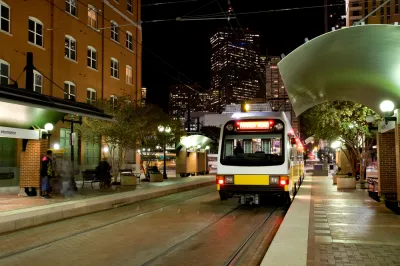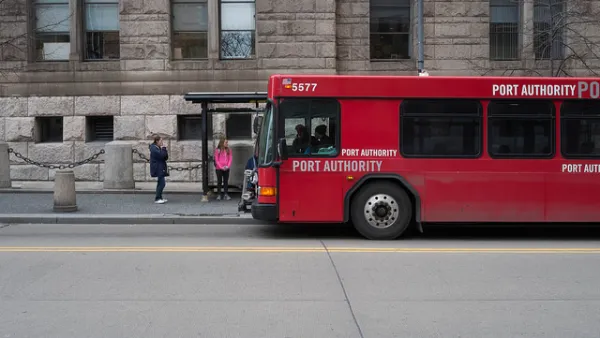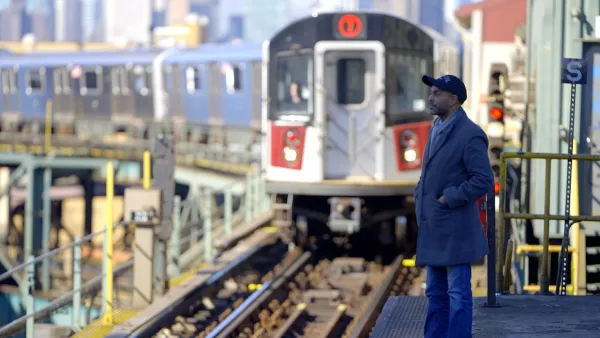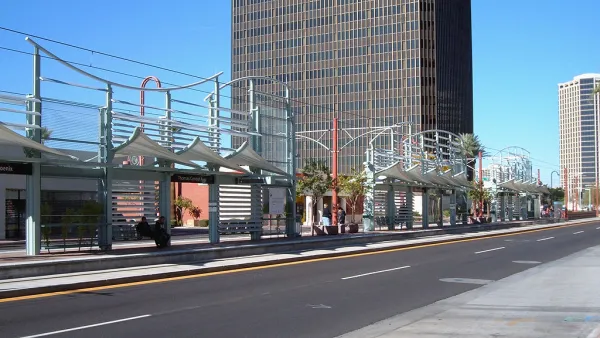2018 could finally reveal how the federal government will approach transit funding in the Trump era. Or the status quo could continue.

Yonah Freemark summarizes the state of transit funding at the beginning of 2018, noting that there is a significant gap between the Trump Administration and Congress on transit funding, but the threat that local and state agencies counting on federal support for planned, or even constructed, transit projects could end up regretting their assumptions.
According to Freemark, "Congress has largely ignored the White House’s efforts to cut funding for transit projects," and "transit agencies are acting as if grants will continue far into the future; they’re continuing to submit their projects for federal review."
That doesn't mean the status quo won't change in the future. "Indeed, Trump has yet to even submit a nominee to head the Federal Transit Administration," reports FReemark. "The FTA’s capital investment report suggested that [pdf] 'Future investments in new transit projects would be funded by the localities that use and benefit from these localized projects,' despite the government’s continued support for road projects, whose use is overwhelmingly local."
The article casts a wide net in taking the temperature of the politics of transit funding at the federal level, noting the projects that received funding in 2017 (from Minneapolis to Indianapolis and Seattle), and speaking directly with transit officials around the country about their plans in 2018. Freemark concludes by offering insight into what to expect from 2018—one key benchmark to watch is the expected release of the Trump Administration's infrastructure plan. Despite the big dollar figure attached to the plan, Freemark is skepticial it will provide the kind of support sought by transit advocates:
What we know about that proposal, however, suggests that it is unlikely to be supportive of the transit projects most cities want. The administration’s rhetoric about the plan suggests that it would emphasize selling or leasing assets to private entities (though the president himself is apparently not confident that public-private partnerships work in the first place), and fund projects that can “support themselves” through user fees, which means that it won’t do much for projects other than toll highways in dense urban areas.
For more coverage on the large issue of local funding versus federal funding for transportation investment, see a recent article by Adie Tomer and Joseph Kane.
FULL STORY: A year into the Trump Presidency, federal transit support limps along

Analysis: Cybertruck Fatality Rate Far Exceeds That of Ford Pinto
The Tesla Cybertruck was recalled seven times last year.

National Parks Layoffs Will Cause Communities to Lose Billions
Thousands of essential park workers were laid off this week, just before the busy spring break season.

Retro-silient?: America’s First “Eco-burb,” The Woodlands Turns 50
A master-planned community north of Houston offers lessons on green infrastructure and resilient design, but falls short of its founder’s lofty affordability and walkability goals.

Test News Post 1
This is a summary

Analysis: Cybertruck Fatality Rate Far Exceeds That of Ford Pinto
The Tesla Cybertruck was recalled seven times last year.

Test News Headline 46
Test for the image on the front page.
Urban Design for Planners 1: Software Tools
This six-course series explores essential urban design concepts using open source software and equips planners with the tools they need to participate fully in the urban design process.
Planning for Universal Design
Learn the tools for implementing Universal Design in planning regulations.
EMC Planning Group, Inc.
Planetizen
Planetizen
Mpact (formerly Rail~Volution)
Great Falls Development Authority, Inc.
HUDs Office of Policy Development and Research
NYU Wagner Graduate School of Public Service




























